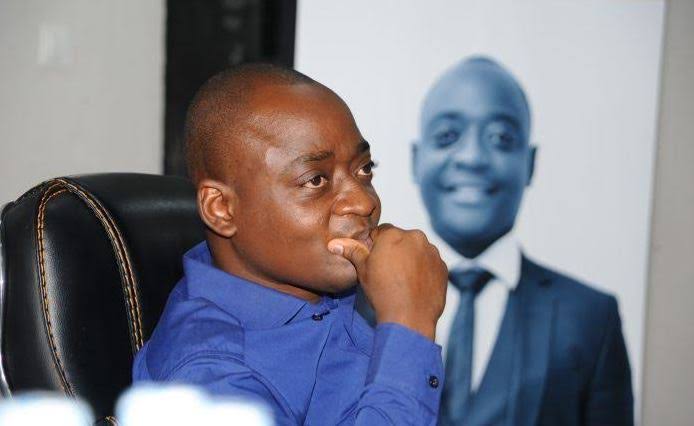When distraught Kampala businessman Hamis Kiggundu started business, he shortly gained a reputation as one of Uganda’s successful businessmen, more so that he did it under the age of 40, raising questions in some sections of the public in Uganda, a country where young people find it hard to amass wealth, given the scarcity of working capital. Kiggundu could go on to write a book on his business journey and acumen, to the extent that it was recommended for secondary schools offering entrepreneurship to students. Unfortunately his recent scandals could cause him to fall from grace to grass.
The loan related events in Court
Firstly, between 2011 and 2016, Kiggundu borrowed money to the tune of Shs41 billion from Diamond Trust Bank Kenya (DTB-Kenya) through Diamond Trust Bank Uganda (DTB-Uganda) to finance his real estate business. He duly signed the loan agreement with DTB-Kenya. This loan was reportedly syndicated.
Secondly after realising that he was having issues with his obligation to pay back the loan as scheduled in the agreement, around December 2019, Kiggundu raised concerns with DTB- Uganda that the bank was debiting his account without his consent.He accused the bank of financial fraud to the tune of Shs120 billion. This, he did by carrying out a private audit of his bank accounts, which the bank would later challenge in court.
On August 31, 2020, Kiggundu and DTB-Uganda agreed to have an independent audit and reconciliation of Kiggundu’s loan amounts to determine the indebtedness of either party. The audit was to be done by ICPAU as appointed by court. It was one of the issues agreed before the trial of the main case where Kiggundu among others alleged DTB-Uganda had defrauded him of Shs120 billion.
On September 15, 2020, Kiggundu’s lawyers surprisingly filed an application seeking for order for stay of the execution order of court appointing ICPAU auditors.
Still on September 16, 2020, By way of a letter, Kiggundu’s lawyer Fred Muwema sought leave to have application of the stay of appointment of auditors withdrawn yet it is Kiggundu who needed the audit so much. It raised questions.
Surprisingly, like in playing a syndicate game, the trial Judge Henry Peter Adonyo on September 30, 2020 granted stay of the appointment of independent auditors, a decision that shocked lawyers of DTB-Uganda and DTB-Kenya, as well as the legal fraternity in Uganda and the rest of Africa. Kiggundu’s lawyers had argued in the application that the loans to Kiggundu were illegally provided as they contravened the Financial Institution’s Act, 2004.
On October 5, 2020, Judge Adonyo made the shocking ruling in favour of Kiggundu and his companies Ham Enterprises Limited and Kiggs International Limited, saying that the loans were illegal and therefore they had no obligation to pay back. The judge disappointed bankers as he ordered that DTB-Uganda reimburses Kiggundu Shs34, 295,951,553 and US$23,467,670.61 allegedly unlawfully deducted from the businessman’s accounts. The judge further ordered that the mortgages tendered in by Kiggundu as security be returned to him since the transaction was “illegal”.
On October 7, 2020, DTB Uganda appealed against Judge Andonyo’s ruling that had given Kiggundu a leeway to cheat the bank, despite running there for help. The appeal was accepted by the Principal Judge Flavian Zeija on November 2, 2020, pointing out grounds that could be handled in the Court of Appeal. They include the procedural aspects, illegality and agency banking.
Bank of Uganda on November, 14, 2020 in a “statement regarding financial institutions business regulated by bank of Uganda under the financial institutions act, 2004 as amended in 2016” stated that DTB-Kenya did not need to establish a representative office in Uganda to do syndicated loan business in Uganda, especially that its affiliate DTB-Uganda is already in the country and was acting as its agent for that particular business. “International and Regional Development Organizations, Foreign Banks, and other Lenders both local and foreign who may choose to appoint any entity or person to act as their agent in Uganda under general contract law do not require approval from BoU. Such agencies do not fall within regulated agency under the FIA, 2004 and do not require a BoU license.”
UBA issues statement after Judge Adonyo’s ruling
On October 8, bankers under the umbrella of Uganda Bankers’ Association (UBA), issued a statement condemning Judge Adonyo’s ruling, saying that it puts Shs5.7 trillion at risk of not being paid since it was acquired as syndicated loans. They pledged to join DTB-Uganda in Court of Appeal. They said Uganda as a country needs external financial help to carry out development projects by both government and private sector. In a statement, they argued other stakeholders like Uganda Insurers Association, UMA, KACITA, URA, UIA, ULS, MPs, civil society, among others to joint their side.
Kiggundu, a racist businessman!
After judge Adonyo’s ruling that favoured him, Kiggundu castigated foreign banks, alleging that they give loans to foreigners at a low interest than they do to Ugandans. He alleged that the foreign banks were cheating Ugandans. That statement has not gone down well with representatives of foreign banks.
Kiggundu has written: “Basing on realistic circumstances on ground, I identified hindering factors in our Banking sector which included the following;
Dominance by foreigners in top management position, current discriminative policies against Ugandans on Interest rates as we are given higher rates compared to foreigners, discrimination on Loan amounts disbursed as Ugandan are under Financed compared to foreigners, lack of transparency of Banks to customers, inadequate legal frame work and structures when it comes to Banking laws that tend to protect these Banks at the cost of we their customers.
Case in point is the Regulation 13 of the Mortgage act 2012 that tends to require a customer to deposit 30% of any disputed amount with the Bank before courts can proceed to hear their case which is contrary, repugnant and inconsistent to article 28 of the constitution that provide the right to fair hearing and access to courts of Law and article 26 which provides the right to property. Banks equally operate within our deposit and savings as capital yet repatriate all the profits depriving the country of it’s would be developmental capital among others.”
He goes on to allege without concrete evidence: “The boards of directors for example are appointed by the Real owners of the banks (foreign or local), and for those banks which are listed on the Uganda Securities Exchange (USE), the board is voted in by the shareholders who also usually control a small percentage with the biggest control going to the largest shareholders who are usually foreign based investors (individual or company).
So this is where the concern is, that the owners/largest shareholders of these banks have the final say or control on their bottom-line which is the Profit. They decide what happens and where the profits will be repatriated to; usually in their home countries. Therefore it is not just a matter of having indigenous Ugandans in positions of influence in these banks like the boards of directors, Chief Executives, senior management etc, when they have little control on the huge profits which are all made from and in Uganda!
The concern based suggestion here is that we need to have more of the locally OWNED commercial banks not just locally MANAGED.”
Kiggundu blacklisted by banks and money lender
A source from UBA, says Kiggundu has been blacklisted by commercial banks after he exhibited his cheating ways. “Many banks cannot trust him now. They can’t give loans in the future unless he accepts to pay DTB-Uganda loan,” a bank told this writer, adding that, “he is a bad borrower who thinks he is bigger than the banking sector.”
Further money lenders in Kampala have also banned lending to Kiggundu as he has failed to pay some of them. A prominent businessman has Godfrey Kirumira has already attached some shops at Nakivubo Shopping Grounds in order to recover his money.
Controversial takeover of Nakivubo war memorial stadium
Two Ugandan citizens, George Nyanzi and Joseph Asiimwe last year sued Ham Enterprises alongside four others for allegedly conniving to mortgage the famous stadium at US$7 million (about Shs25.9 billion). The mortgage arrangement is said to have taken place on March 4, 2019.
Through their lawyers of Muwema & Co Advocates, the plaintiffs avered then that Ham Enterprises, the trustees of the stadium, ABSA Bank Uganda (formally Barclays Bank Uganda), Kampala District Land Board and the Commissioner Land Registration jointly and severally created a lease and subsequent mortgage of the stadium “for unauthorized gain knowing it was illegal to do so.”
The plaintiffs argued that leasing the stadium to Ham Enterprises and the company using the same to acquire US$7 million mortgage from ABSA Bank Uganda is an abuse of public authority and in contravention of the law. Ham Enterprises is owned by Kampala businessman Hamis Kiggundu.
The plaintiff want court to cancel any purported rights or interests created over the stadium, saying it is illegal. Specifically the plaintiffs say the transaction contravenes the Nakivubo War Memorial Act.Cap.47 and Article 26 of the Constitution of Uganda.
The plaintiffs want court to order the Commissioner Land Registration to cancel the lease awarded to Ham Enterprises and revert it into the names of Trustees of Nakivubo War Memorial Stadium Trust. The plaintiffs argue that Ham Enterprises currently runs the Stadium as a private property, have been given a lease in disregard of the laws.
The plaintiffs say they have all evidence to prove their case against the defendants.
Failure to pay contractors
As Kiggundu battles in court, sources say he has failed to pay contractors who were hired by Ham Enterprises to develop Nakivubo Stadium. One of the companies demanding money from Kiggundu is ROKO Construction Company. Other companies. According to the sources have packed their items and left. Work at the stadium is stalled.
At war with NEMA
Kiggundu is said to be at war with National Environment Management Authority (NEMA) for constructing a palatial residence in the wetlands of Lake Victoria. He has constructed at Ggaba-Kawuku, where tycoons, have constructed mansions in areas that used to be wetlands. Recently heavy rains that filled Lake Victoria invaded part of his residence.
Responding to Kiggundu’s recent scandals, an analyst said greed, pride, ignorance and lack of wisdom are one of the factors that have caused the fall of great men and women. “Kiggundu must stop all these if he wants to remain successful in business life” he said.


